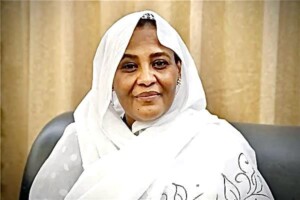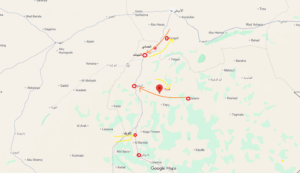Call for Sudan to exhume mass graves to identify victims
Sudan is yet to account for hundreds of political dissents forcefully disappeared during the deposed Al Bashir regime and during the 2018-2019 national revolution. Those missing during these periods also remain uncounted for. In a statement to mark the International Day of the Disappeared yesterday (August 30), the US-based African Centre for Justice and Peace Studies (ACJPS) that monitors respect for human rights and law reform in Sudan, has called on the Sudanese authorities to exhume mass graves to identify victims and give justice and closure to their families.
 File graphic (RD)
File graphic (RD)
Sudan is yet to account for hundreds of political dissents forcefully disappeared during the deposed Al Bashir regime and during the 2018-2019 national revolution. Those missing during these periods also remain uncounted for. In a statement to mark the International Day of the Disappeared yesterday (August 30), the US-based African Centre for Justice and Peace Studies (ACJPS) that monitors respect for human rights and law reform in Sudan, has called on the Sudanese authorities to exhume mass graves to identify victims and give justice and closure to their families.
“Sudanese authorities should give the families of victims the answers and the justice they deserve,” the ACJPS statement urges. “The authorities, with the help of international forensics experts, should exhume the dead and reveal their identities. The international community should support the investigation, including by providing forensics experts to help conduct DNA testing.”
The ACJPS points out that under international law, the crime of enforced disappearance continues until the state reveals the fate or whereabouts of the individual concerned and this requires, when the disappeared person is found to be dead, returning the remains of the victims to their families.
Since the overthrow of the Al Bashir regime in April 2019, several mass graves believed to contain remains of people forcefully disappeared, missing, extra-judicially killed, or executed have been discovered across Sudan. The gravesites documented vary in size, with some holding several dozen bodies.
A recent report commissioned by the Sudanese General Prosecutor indicates that two mass graves were discovered in Khartoum in June and July 2020. They each contained 28 and 40 bodies respectively. One of the graves is believed to hold bodies of military officers who were allegedly engaged in a coup attempt against al Bashir in 1990 whilst the other contains remains of students reportedly killed at a national military camp in 1998. Three mass graves were earlier discovered in Central Darfur.
In November 2020, the committee on the missing persons announced that they had discovered another mass grave containing the remains of people considered “missing” after the 3 June massacre in Khartoum. The committee has since secured the site to ensure that it is not tampered with, and have taken the bodies to morgues for DNA testing and to ascertain the circumstance of death. The committee stated that evidence suggest that mass graves exist in specific areas of missing persons that were killed, and buried illegally.
The ACJPS statement highlights that the large number of complaints from family members whose loved ones have been disappeared or have been missing heightens the urgency of exhuming the mass graves in Sudan.
“Sudanese authorities should give victims’ families the answers and the justice they deserve. The authorities, with the help of international forensics experts, should exhume the dead and reveal their identities. The international community should support the investigation, including by providing forensics experts to help conduct DNA testing.”
The ACJPS laments that “a lack of accountability for past crimes has fostered a climate of impunity in Sudan. To date, several perpetrators of human rights violations have not been held accountable mainly among others due to the immunity laws that protect perpetrators and lack of political will.”
The ACJPS urges Sudan to take all necessary measures to locate, disclose, protect and preserve all mass graves sites. “Hiding, damaging, or destroying mass graves are strictly prohibited as it would constitute a violation of the rights of families and society to know the truth about the circumstances behind the existence of the mass graves, including executions and enforced disappearances.” The ACJPS concludes.











 and then
and then